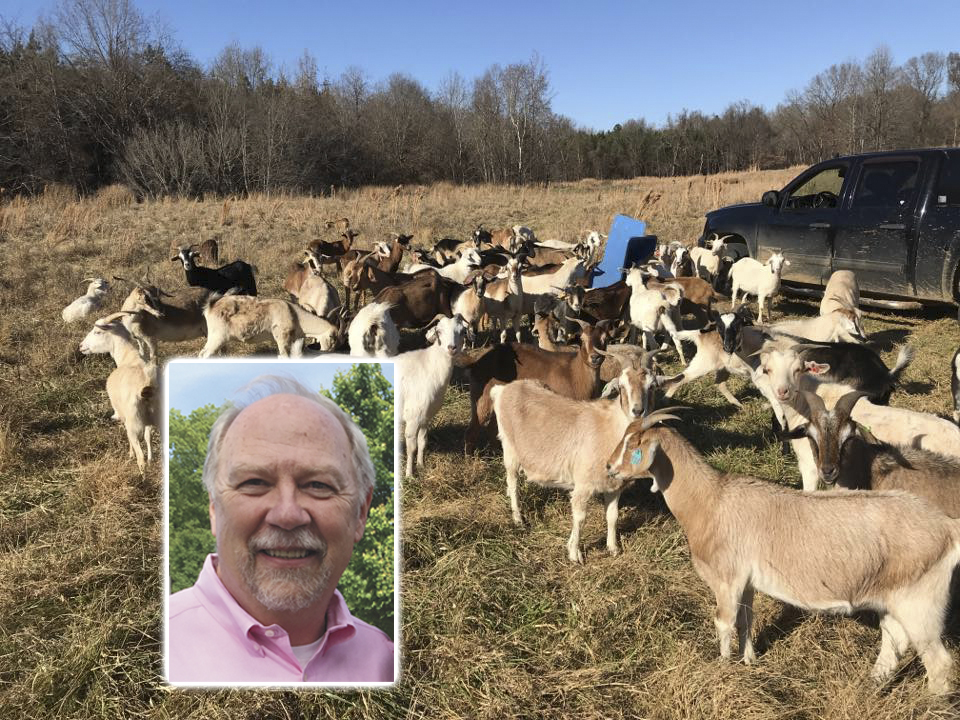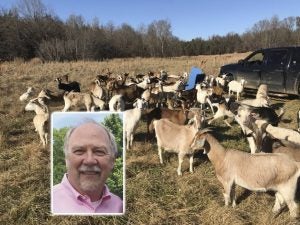BCC to host Farm show with Kiko (meat) goats
Published 12:13 pm Friday, March 16, 2018

- Terry Hankins’ Kiko goat sale will be held April 6 and 7 at the Batesville Civic Center.
BCC to host Farm show with Kiko (meat) goats

Terry Hankins’ Kiko goat sale will be held April 6 and 7 at the Batesville Civic Center.
By Jeremy Weldon
A goat is a goat is a goat. Right? Not so fast.
The Batesville Civic Center is gearing up to host the first Mid-South Farm Show that will feature area agriculture companies, tractor dealers, and related vendors, but the main focus for the weekend of April 6 and 7 will be goats.
Specifically, New Zealand Kiko goats. The event was organized by Terry Hankins, who has been raising the special breed of meat goats for 20 years at his Egypt Creek Ranch in Sarah, just west of Panola County.
The show will be one of several events planned for the Civic Center this year, and although some attract smaller crowds from a niche market, city officials and economic planners are always welcoming of any guests who eat, sleep, and shop with local businesses.
The highlight of the farm show will be the Elite Genetics Kiko Goat sale Saturday afternoon. The sale will be broadcast live via DVAuction.com, and goat producers from across the country will be bidding in real time for the prized livestock.
Hankins, who has the second oldest herd of Kiko goats in the United States on his 80-acre ranch, is holding the sale to celebrate his 20th year in the Kiko business. Also expected in Batesville for the weekend are about 10 other goat ranchers from Oklahoma, Texas, Tennessee, and other parts of the country.
Sale consignments will include yearling does, does with kids, recipient does with embryos, foundation does, frozen embryos and semen, yearling bucks, and more.
Hankins said bids for the most valuable goats are expected to be in the $3,000 to $4,000 range – not an uncommon price for the best of the registered breed.
Goat meat is becoming increasingly popular world-wide and is steadily gaining popularity in the United States. Four and five-star restaurants often have goat meat dishes on the menu, and it has most recently gained popularity as a healthy meat alternative for consumers not satisfied with beef and pork choices.
Kiko goats were bred for their high lean meat and high protein content in the early 1990s. Significant numbers first arrived in the United States two years later as breeders here began to see the added value of the Kiko relative to their profits.
Because New Zealand’s environment is similar to the southeastern portion of the United States, the Kikos outperformed the Boer breed, which had long been the standard for American ranchers.
Hankins made his move into the Kiko market in 1998, just as the goat market began to steadily increase in the U.S.
Hankins, 62, built a herd of 400 on 200 acres, but over time has reduced his holdings to about 100 on half the number of acres. “I’m readyto slow down some now,” he said.
He hasn’t slowed much, though. As editor and publisher of Goat Rancher magazine, Hughes stays busy producing a sizable trade journal from his office at Egypt Creek Ranch.
The monthly journal reaches about 5,000 regular subscribers, and is sold in nearly 1,000 Tractor Supply Company outlets.
The magazine is a sleek, well-written publication and is full of news about all things goats. The market for goat affiliated gear and things needed to raise goats from the beginner to the full-time rancher is surprisingly large, and growing.
Hughes, who spent 20 years in the newspaper business, including a stint as an agri-business columnist for the Clarion-Ledger, points out that livestock producers are attracted to goat farming because of the short gestation period and how quickly the breed matures.
Cattle farmers have about a two-year investment in their cows before they can be taken to market, compared to about nine months for the Kiko breed.
All of the events at the upcoming Mid South Farm Show are free and open to the public. Hankins said he hopes to see lots of families attend to see the prized goats, even if they aren’t planning on bidding or raising goats.


